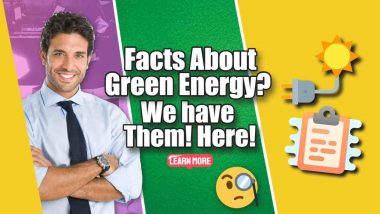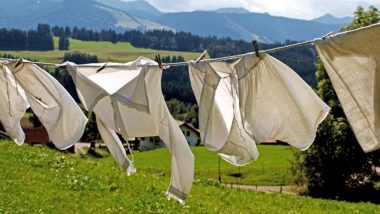There are good reason to consider converting your home boiler to heat pumps. It will save you on power cost, of course, but another good reason to make the move to a heat pump system is the significant reduction it will make on your home carbon footprint.
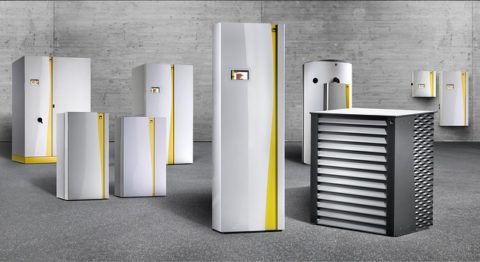 A lot of people discuss how important green energy is for a better environment and future. However, a lot of people are remiss for solutions or ideas that can help them live a greener lifestyle. This article provides numerous tips for people who are interested in living a green life.
A lot of people discuss how important green energy is for a better environment and future. However, a lot of people are remiss for solutions or ideas that can help them live a greener lifestyle. This article provides numerous tips for people who are interested in living a green life.
Living a Green Life – Especially if You Don't Consider Converting Your Home Boiler to Heat Pumps
Try setting the air conditioning to run just one degree Celsius warmer during the summer and one degree Celsius cooler during the winter. You will not even notice this difference in temperature, and you'll save a lot of money and energy. In addition, the amount of carbon being used will decrease by around 14%.
Outdoors, solar-powered lights are very convenient for patios and garden paths. These lamps aren't costly and do not need additional power sources other than direct sun exposure. This, of course, will save you a lot of money. It also means you don't need hard wired outdoor lights.
Try using energy efficient light bulbs or even LED lights in your home to cut costs for lighting. Turning off the lights when you are not in the room also helps to save energy. Keep this in mind when you are leaving home, as simply turning off the lights saves a lot of energy!
If you have a swimming pool, you can save a lot of money by using solar energy to heat the water. Solar heating systems are not more expensive than other solutions and are easier to maintain. These systems also work for your outdoor hot tub. This is probably the best use of solar power.
In order to save energy at home, plug your electronics, including televisions and DVD players, into power strips and when you are not using them, turn off the power strips. Not only will you be preserving energy by doing this, but you will also be saving money on your electricity bill.
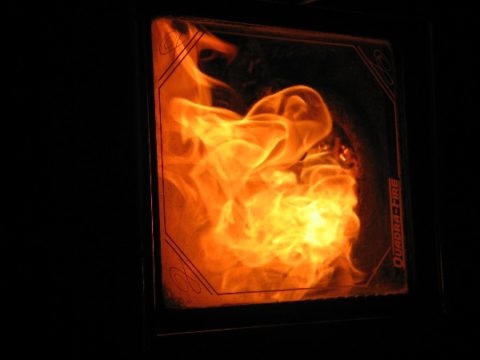
Heat your home with a pellet stove. Pellets are basically made of compressed sawdust: they burn without any emanation and are much easier to store and transport than a pile of wood. Before investing in a pellet stove, you should find a place where you can get affordable pellets first.
Use rechargeable batteries. While they might cost a little bit more initially, they will save you a lot of money in the long run. Rechargeable batteries can be used hundreds of times, and they only need to be replaced about every five years. Another benefit is that you aren't constantly adding corrosive batteries to the landfill.
An easy way to make your home greener is to replace your old light fixtures with ones, which are ENERGY STAR qualified. If you are unable to install ENERGY STAR qualified lighting fixtures at the moment, at least replace your standard light bulbs with compact fluorescent light bulbs (CFLs) which use much less energy.
Make use of the natural sunlight for great green energy savings. Install solar tubes in your home which take the light from outdoors and bring it inside so you do not need to use lamps and other lighting sources as often. These are relatively inexpensive and are great for increasing the value of your home.
Replace an old washing machine with a high-efficiency model for a greener way to do your laundry. High-efficiency machines come in both top-loading and front-loading designs that use less water than standard machines. They also spin clothes at high speeds to wring more water out of them, helping them dry faster.
Think about giving green gifts for presents when you need to buy people gifts. If you are going to a house warming, give them a case of CFL bulbs for their new home or buy your friends reusable stainless steel water bottles. Even if you do not have gifts to give, think about buying them for yourself.
Stay in control of your energy consumption by getting a Bye Bye Standby device. This device is basically a motherboard into which you can plug in all your devices. You will be able to completely turn on and off any device that you are not using through this panel. It also gives you access to information about your power consumption.
Know when your appliances need to be replaced. If you have a major appliance, such as a furnace or air conditioner that is over 10 years old, you should replace them with newer, more energy-efficient models. Buying the newer, Energy Star appliances can save you a lot in the years to come.
Turn off any light in your home that you are not using as one of the simplest ways to use green energy. Turning off unused lights saves energy by not providing power to areas of the home that will be wasted. Not only does it save energy, but saves you money as well.
As was mentioned at the start of this article, green energy has garnered quite a bit of interest in the media and amongst everyday people. Sadly, some people aren't sure how they can implement green changes to live a more sustainable life. This article provided suggestions for environmentally concerned and compassionate people.
More Information to Assist Readers in Understand How Heat Pumps Work to Enable them to Consider Converting Your Home Boiler to Heat Pumps:
A geothermal heat pump or ground source heat pump (GSHP) is a central heating and/or cooling system that transfers heat to or from the ground.
It uses the earth as a heat source (in the winter) or a heat sink (in the summer). This design takes advantage of the moderate temperatures in the ground to boost efficiency and reduce the operational costs of heating and cooling systems, and may be combined with solar heating to form a geosolar system with even greater efficiency. They are also known by other names, including geoexchange, earth-coupled, earth energy systems. The engineering and scientific communities prefer the terms “geoexchange” or “ground source heat pumps” to avoid confusion with traditional geothermal power, which uses a high temperature heat source to generate electricity. Ground source heat pumps harvest heat absorbed at the Earth's surface from solar energy. The temperature in the ground below 6 metres (20 ft) is roughly equal to the mean annual air temperature at that latitude at the surface.
thermal energy – Thermal energy is a term used loosely as a synonym for more rigorously-defined thermodynamic quantities such as the internal energy of a system; heat or sensible heat
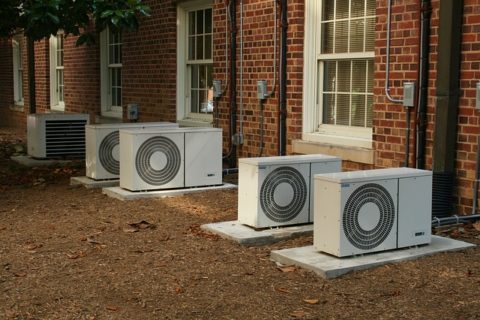
air conditioners – Air conditioning (often referred to as AC
freezers – A refrigerator (colloquially fridge
HVAC – Heating refrigeration-type cycle – Thermodynamic heat pump cycles or refrigeration cycles are the conceptual and mathematical models for heat pumps and refrigerators . A heat pump is a machine or device that moves heat from one location (the source) at a lower temperature to another location (the sink or heat sink) at a higher temperature using mechanical work or a high-temperature heat source. Thus a heat pump may be thought of as a heater if the objective is to warm the heat sink (as when warming the inside of a home on a cold day)
electrical resistance heaters – Electric heating is a process in which electrical energy is converted to heat . Common applications include space heating.


